AUGUSTA — Joe Biden narrowly won Tuesday’s presidential primary by edging out Bernie Sanders in towns large and small across rural and suburban Maine, despite the Vermont senator’s overwhelming support in liberal bastions.
In today’s political landscape, Maine is often carved up along geographic or demographic lines as a way to explain voting results: coastal vs. interior Maine, urban vs. rural, wealthy Mainers vs. those with less, Greater Portland vs. everywhere else.
Yet Tuesday’s presidential primary upended many of those political constructs. Instead, the closely divided results revealed a Democratic electorate that – as with voters in other Super Tuesday states – appeared to divide along ideological or pragmatic lines.
Sanders carried the younger, liberal strongholds of Portland, Westbrook, Orono and Farmington, but also swaths of the Midcoast and Down East where back-to-the-landers and libertarian-leaning Democrats hold sway.
Biden, on the other hand, won nearly all of the still-left leaning but older-money towns to the north and south of Portland such as Falmouth, Yarmouth, Scarborough and Cape Elizabeth. The moderate also dominated blue-collar mill towns like Millinocket, Rumford, Jay and Madawaska despite Sanders’ long-standing and vocal opposition to international trade deals that many say contributed to declines in Maine’s manufacturing industry.
“Biden did well in the kinds of places that moved toward Trump in 2016 … and also did well in the old-fashioned, high-education liberal towns,” said Jim Melcher, political science professor at the University of Maine at Farmington.
Towns across Maine reported high Democratic turnout as voters not only participated in Maine’s first presidential primary in 20 years, but did so on Super Tuesday, the most consequential primary day of the 2020 elections.
A map of voting results by town shows Maine’s coastline as a patchwork of Biden and Sanders pockets. The former vice president claimed the coast from Kittery to South Portland (with the exception of Biddeford) and then picked up most coastal towns from Falmouth to Camden.
But Sanders won much of coastal and interior Knox and Waldo counties – which Melcher called “the Common Ground Fair area” – as well as Ellsworth, parts of the Blue Hill peninsula and all of Mount Desert Island.
Many of the state’s most prolific lobstering communities – places like Stonington, Deer Isle, St. George, Cushing and Jonesport – supported Biden. But many western Maine towns where the forest products industry is still a major employer went for Sanders.

A town-by-town breakdown of how the top-tier candidates performed Tuesday in Maine’s Democratic presidential primary. Staff graphic by Michael Fisher and Brian Robitaille
Maine’s larger municipalities also split between the two. Portland, Bangor and Waterville all favored Sanders while Lewiston, Auburn, Brunswick and Augusta all leaned toward Biden.
“The real pattern here is that momentum matters,” said David Farmer, a veteran Democratic political strategist and campaign manager who was not involved in any of the presidential candidates’ campaigns.
The predominant thinking headed into Tuesday’s primary was that Sanders would win Maine because of a strong, vocal following here that never dissipated after his landslide victory over Hillary Clinton during Maine’s 2016 caucuses. But Farmer pointed out that Sanders was also heavily favored in Texas – one of the largest delegate pools up for grabs Tuesday – just a few days ago and yet Biden won the state.
Biden’s commanding win in South Carolina last Saturday changed everything and prompted moderate contenders Minnesota Sen. Amy Klobuchar and former South Bend, Indiana, mayor Pete Buttigieg to withdraw and throw their support behind Biden.
“The delegates are what counts and the delegate race is very close,” said Farmer, who cast his vote early for Buttigieg before he withdrew and endorsed Biden. “Nobody pulled away, but the consolidation between the two front-runners is real.”
Despite Biden’s overall win, Maine’s 24 delegates will be divided among the former vice president, Sanders and Massachusetts Sen. Elizabeth Warren, who qualified for delegates by receiving more than 15 percent of the vote. The exact breakdown will depend on the final vote counts in both congressional districts as well as statewide.

Democratic presidential candidates Sen. Bernie Sanders, I-Vt., left, and former Vice President Joe Biden, shake hands on stage before the start of a Democratic presidential primary debate on Feb. 7 in Manchester, N.H. Biden narrowly edged Sanders in the Maine Democratic primary. Charles Krupa/Associated Press
Melcher said he had expected Warren to fare better in Maine given her name recognition, high-profile position and connection to nearby Massachusetts. Unofficial results as of Wednesday evening showed Warren winning only two tiny towns where a total of just 24 votes were cast in both locations.
Former New York City Mayor Mike Bloomberg received 12 percent of the total vote statewide but only finished on top in three towns that collectively accounted for 33 voters. That’s despite the fact that Bloomberg spent millions of dollars on ads, campaign literature and on-the-ground staff in Maine.
The former vice president, by comparison, had a negligible campaign presence in the Pine Tree State yet managed to win 35 percent of the vote here and the most delegates in nine other Super Tuesday states.
“Biden had no footprint to mention here in Maine, or certainly not as large as Bloomberg or as large as Bernie,” Farmer said. “I think what you are seeing with these outcomes is the nationalization of politics right now.”
Andrew Rudalevige, chairman of Bowdoin College’s Department of Government and Legal Studies, said it is unusual to see such a rapid coalescing around one candidate in Maine and nationally. The former vice president wasn’t even above the 15 percent threshold to receive delegates in Maine just a few weeks ago, when Colby College conducted a poll of voters.
Until last week, Sanders seemed to be enjoying a similar dynamic to Trump’s win during the 2016 Republican primary: both candidates had a fiercely loyal following and a large, fractured field of opponents, Rudalevige said.
But Democrats concerned about Sanders’ chances against Trump in November decided the stakes were too high headed into Super Tuesday.
“One of the things that seemed to be predictive of a Biden vote is when people made up their minds,” Rudalevige said. “People who were late (deciders) were more likely to go with Biden because of the signaling from the party, really, through endorsements like Klobuchar, Buttigieg and Beto O’Rourke.”
But while Maine Democratic leaders were exuberant about the high turnout – nearly 60 percent of all party registrants – that doesn’t guarantee anything in November, especially in the rural areas of Maine that supported Trump four years ago.
“There are a lot of towns that Biden carried (on Tuesday) that I would be very surprised if he won in the general election,” Melcher said.
Send questions/comments to the editors.


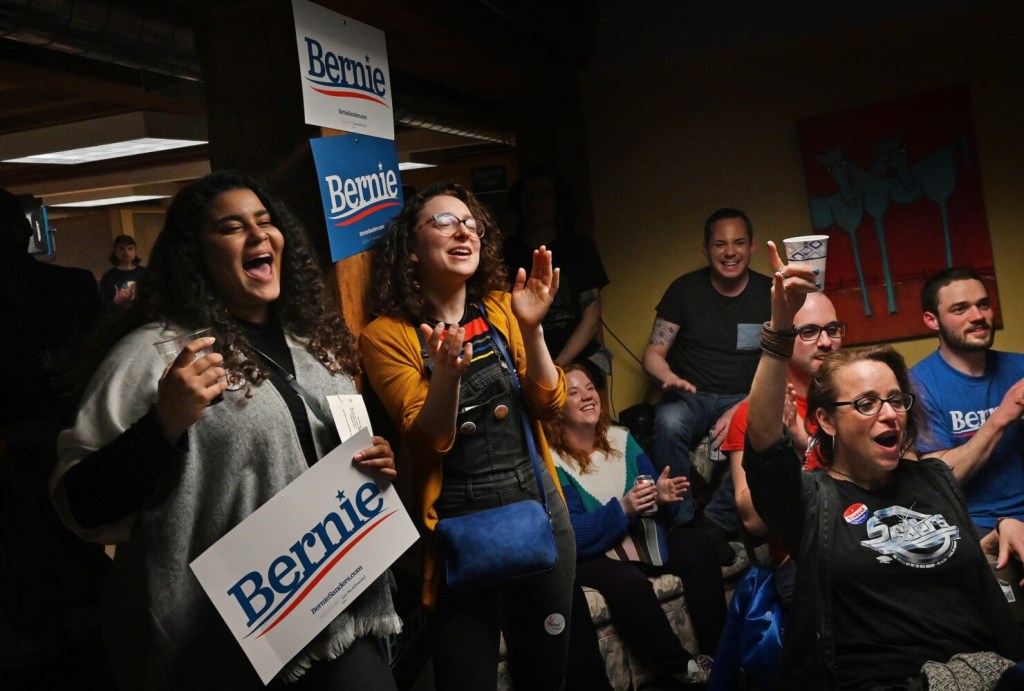

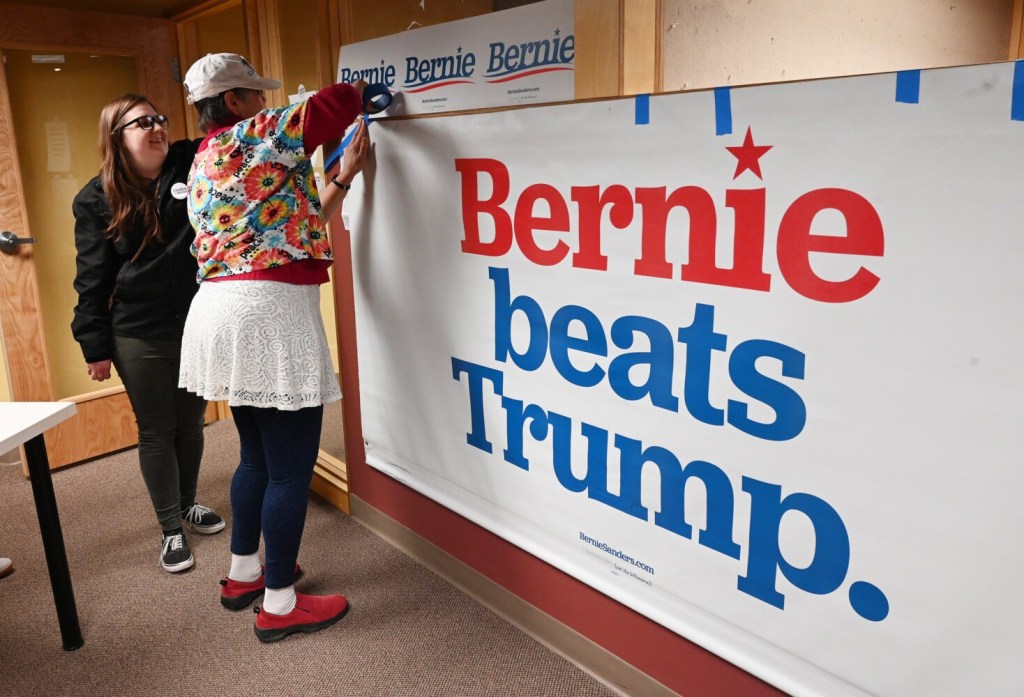
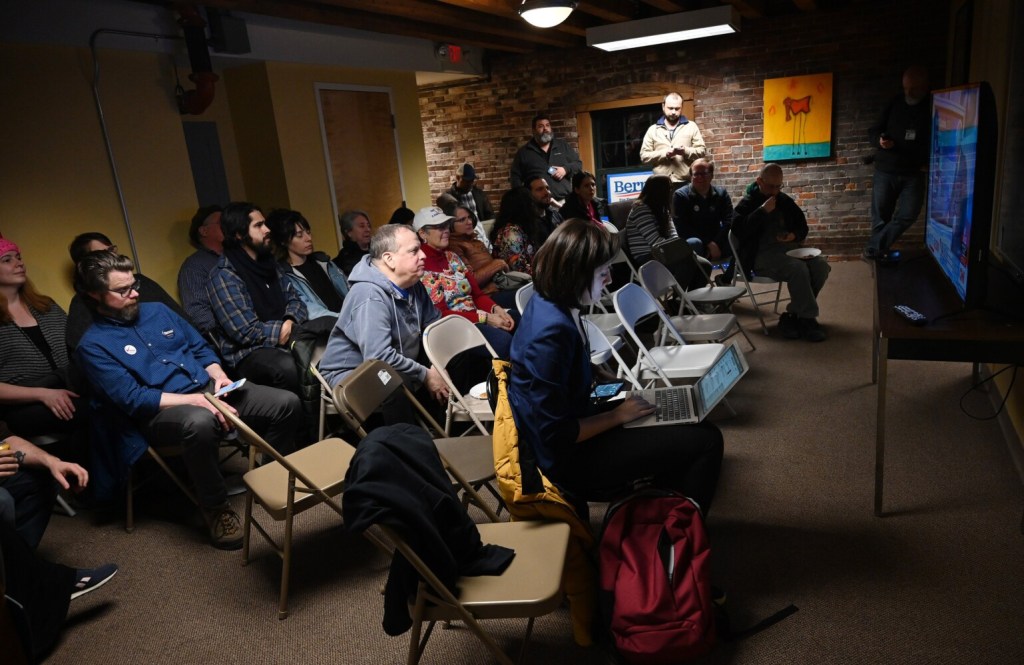
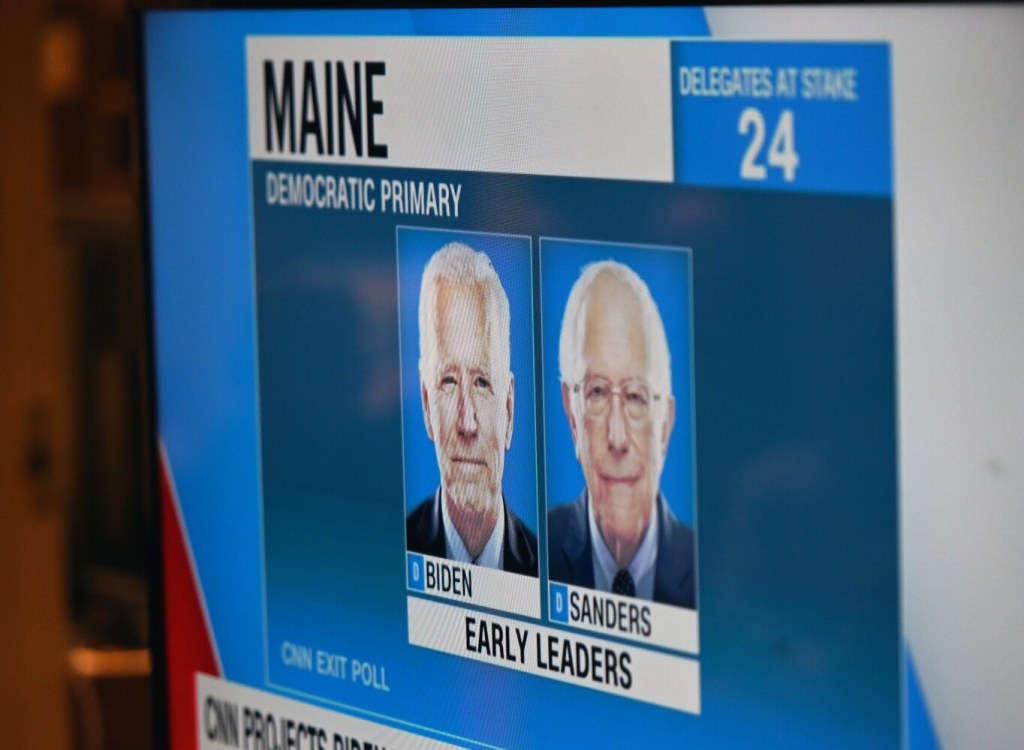
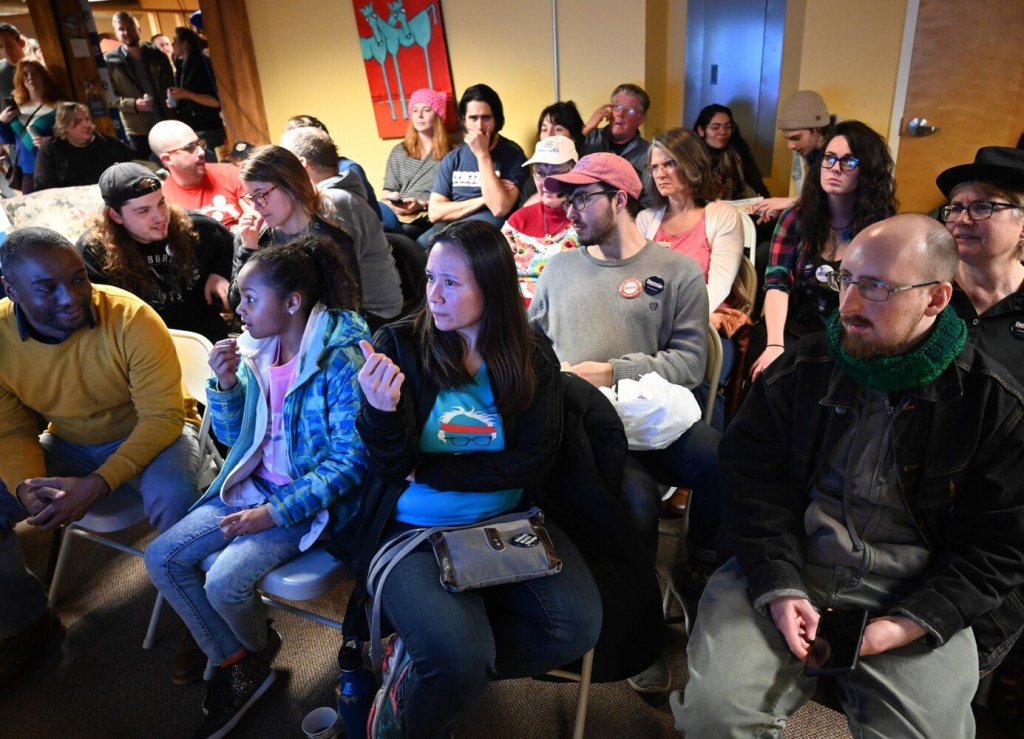
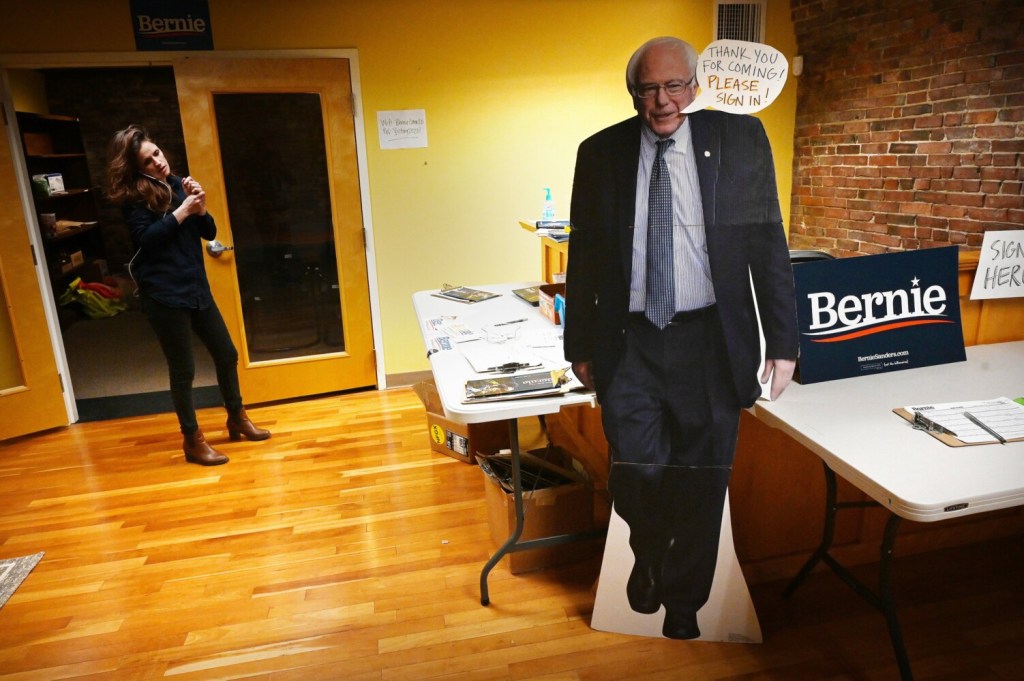

Comments are no longer available on this story